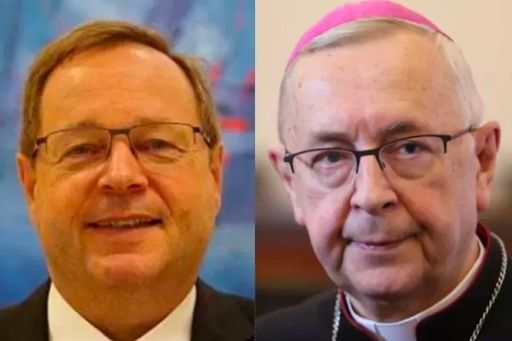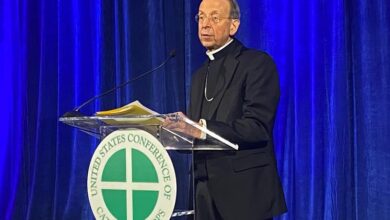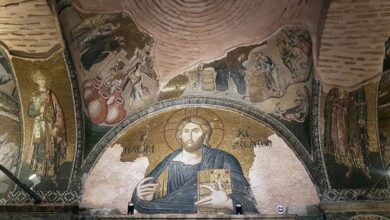Confronting controversy: German-Polish bishops’ dialogue highlights synodal way tensions

 Bishop Georg Bätzing of Limburg, Germany, (left) and Archbishop Stanisław Gądecki of Poznań, Poland. / Credit: Bistum Limburg/Episkopat.pl. / Bistum Limburg/Episkopat.pl
Bishop Georg Bätzing of Limburg, Germany, (left) and Archbishop Stanisław Gądecki of Poznań, Poland. / Credit: Bistum Limburg/Episkopat.pl. / Bistum Limburg/Episkopat.pl CNA Newsroom, Nov 28, 2023 / 14:05 pm (CNA).
A public dispute between the German Bishops’ Conference president and his Polish counterpart took another turn on Monday when both prelates met in person to discuss what the German bishop called “irritations.”
Bishop Georg Bätzing of Limburg, Germany, and Archbishop Stanislaw Gądecki of Poznan, Poland, spoke on Nov. 27 on the sidelines of the annual plenary meeting of the Council of European Bishops’ Conferences (CCEE) in Malta, according to a report by CNA Deutsch.
The German Bishops’ Conference confirmed the encounter. It followed a strongly-worded letter by Bätzing to his Polish counterpart, published on Nov. 21, in which the German bishop accused the Polish archbishop of making “false statements about the Synodal Way.”
The German prelate roundly criticized the Polish archbishop for raising several serious concerns about the controversial German process with Pope Francis.
Bätzing accused his Polish counterpart of “overstepping his authority” and “unbrotherly behavior” by not raising the issue during the synodal meeting in Rome. The German bishop did not explain how the Polish prelate should have done so, given the limited time allocated to delegates for speeches.
Both prelates have already exchanged views over the controversial German initiative: As early as 2022, Gądecki raised serious concerns about whether the controversial German process was rooted in the Gospel.
‘Irritations had arisen’
Bätzing’s latest missive across the German-Polish border — published by the newspaper Rzeczpospolita — likely made for an awkward encounter between the two prelates on Monday.
After the conversation, Bätzing said they had spoken “frankly” with each other, “before we celebrated holy Mass together, about the irritations that had arisen.”
“We agreed that these are not easy times for the Church in both countries,” Bätzing continued, “and that we want to stand together as neighbors, especially in these times, even if we perceive cultural differences in the legitimate diversity of Catholicism and seek our way into a good future in which we aim to witness the good news to people as we have always done.”
The German added that in future, “questions that arise and possible misunderstandings in our mutual perception should be addressed and shared in the tried and tested way in the German-Polish Contact Group.”
It’s unclear whether this maneuver by the German prelate will quell concerns over the Synodal Way. Not only have fears of a new schism from Germany increased over the past few months, but for years concerns have been publicly raised about the Synodal Way by Church leaders not only from Poland but also the Nordic countries and around the world.
The Vatican has also repeatedly intervened against the German process.
On Nov. 24, Rome informed German bishops that the ordination of women and changes in the Church’s teaching on homosexuality could not be subjects of discussion in the upcoming meetings with delegates of the German Synodal Way in Rome.
Earlier this month, Pope Francis told four prominent German women who quit the German Synodal Way that he shared their concerns.
The German Bishops’ Conference president and other Synodal Way organizers have either dismissed or decried all concerns.
In his latest letter to Gądecki, Bätzing claimed that “nowhere in the texts of the Synodal Way” was there an “intention to bring about a revolution in the universal Church.”





